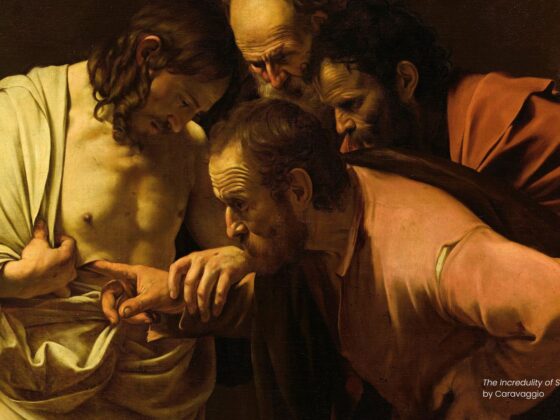Understanding Morality Through a Biblical Lens
March 11, 2025
Understanding the source of morality is essential in shaping students’ lives. A biblical worldview is crucial as it provides a foundation for moral principles. Teaching students how biblical principles inform their understanding of right and wrong equips them for life. This leads to an important question: how does a student’s understanding of morality reflect their worldview?
Note: This article is part five in a 15-part series about the parameters of a worldview. You’ll find links to the other articles at the end of this blog post as they become available. If you haven’t read the previous worldview parameter articles, start with part 1 here: Ultimate reality.
Defining Morality Through a Biblical Lens
Biblical morality is rooted in the character of God. The Bible serves as the ultimate guide for determining moral truth. Romans 2:14-15 states, “Indeed, when Gentiles, who do not have the law, do by nature things required by the law, they are a law for themselves.” This highlights that God’s moral law is written on our hearts. Furthermore, James 1:17 reminds us, “Every good and perfect gift is from above.” Recognizing the divine source of morality fosters a deeper appreciation for the standards we should uphold.
The Role of Conscience in Moral Decision-Making
Conscience plays a critical role in guiding moral behavior. Proverbs 21:2 teaches, “A person may think their own ways are right, but the Lord weighs the heart.” This emphasizes that while we may have our own understanding of right and wrong, God knows our true intentions. Therefore, we must measure our heart orientation, ensuring it aligns with biblical teachings. Cultivating a well-informed conscience is vital, as it leads to making decisions that reflect God’s character.
Worldview Perspectives on Morality
Different worldviews shape our understanding of morality. Naturalism and secular humanism suggest that morality is determined by majority opinion, making it relative and subject to change. According to 1 Timothy 1:5, “The goal of this command is love, which comes from a pure heart and a good conscience and a sincere faith.” In contrast, pantheism, often found in New Age thinking, advocates for inner impulses as the guide for moral choices. This worldview lacks an absolute standard for right and wrong, leading to confusion.
In contrast, theism, particularly biblical Christianity, asserts that morality is grounded in the unchanging character of God. Jesus embodies moral truth, guiding our actions and decisions. Micah 6:8 calls us to act justly, love mercy, and walk humbly with God, emphasizing our responsibility to reflect these values in our lives. Recognizing how student worldview influences decision-making can empower educators to guide students more effectively.
Understanding Students’ Morality Through Assessment
To comprehend students’ moral frameworks, it is crucial to evaluate their perspectives. Asking the right questions can reveal the underlying beliefs that shape their moral choices. The 3-D Worldview Survey serves as a valuable tool for understanding student morality and can illuminate how their beliefs influence behavior. To delve deeper, consider exploring our free PDF: “10 Questions to Understand Student Worldview.” This resource provides educators with essential insights for mentoring students in their moral development.
10 questions to understand worldview
Practical Implications for Christian Educators
Christian educators play a pivotal role in aligning students’ moral decisions with biblical teachings. Galatians 5:22-23 highlights the fruit of the Spirit, serving as a moral compass for our actions. Educators can foster an environment that encourages students to embody these traits, guiding them toward a biblical worldview. Heart orientation, the underlying motivation behind actions, should be nurtured to ensure students genuinely reflect Christ-like qualities.
Conclusion
In conclusion, understanding morality through a biblical lens is essential for students’ moral development. Educators must assess and guide students’ understanding to help them develop a firm foundation of beliefs that influence their daily behavior. The call to action is clear: we must engage in understanding our students’ worldviews better, mentoring and discipling them in their spiritual formation. The 3-D Worldview Survey offers an effective way to facilitate this process.
Next Steps
To explore more about understanding student worldviews, we invite you to download our free PDF: “10 Questions to Understand Student Worldview.” Developing a three-dimensional and biblical worldview in students ensures they possess a solid foundation of beliefs, actively live out those beliefs, and maintain an attitude that orients their hearts toward the Lord Jesus Christ throughout their lives. Sometimes, we all need help understanding our students’ worldviews better and mentoring them in spiritual formation. The 3-D Worldview Survey is here to assist in that journey. If you haven’t yet used the 3DWS with your class, check out the 10 questions pdf below to get started.
What Is the 3-D Worldview Survey?
- Take the 3-D Worldview for yourself
If you haven’t yet used the 3DWS with your class, check out the 10 questions pdf below to get started.
#biblicalworldview #3dworldview #assessingworldview
Key Takeaways
- Biblical Morality is Rooted in God’s Character – A biblical worldview provides a firm foundation for moral decision-making. Scripture teaches that God’s moral law is written on our hearts (Romans 2:14-15), and true morality is based on His unchanging nature rather than societal trends.
- Worldview Shapes Moral Understanding – Different worldviews offer varying perspectives on morality, with secular viewpoints often relying on relative truth, while biblical Christianity anchors morality in God’s absolute truth (Micah 6:8). Understanding these differences helps educators guide students toward a Christ-centered moral framework.
- Assessing and Mentoring Students is Crucial – Christian educators play a vital role in shaping students’ moral development. Tools like the 3-D Worldview Survey help assess students’ beliefs, providing insights to mentor them effectively in biblical morality and spiritual growth.





